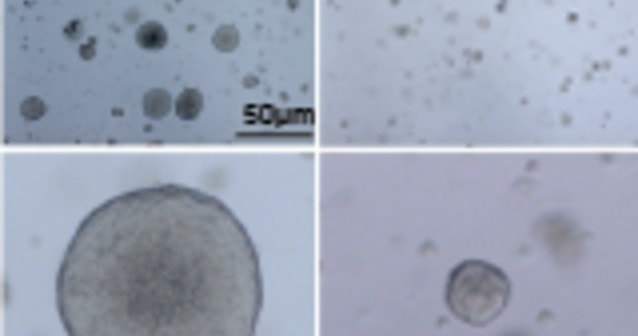|
April 2021 UNCOVERING THE FUNCTION OF PROSTATE CANCER PROTEINFeaturing: Jindan Yu, MD, PhD
Northwestern Medicine scientists have discovered a mechanism that makes a prostate cancer-causing protein called FOXA1 more resilient, according to a study published in Science Advances. The findings shed light on why some prostate cancers don’t respond to certain drugs and chart a path to a possible future therapy, according to Jindan Yu, MD, PhD, professor of Medicine in the Division of Hematology and Oncology and senior author of the study. “This shows how FOXA1 is stabilized so it can promote cancer growth,” said Yu, who is also a professor of Biochemistry and Molecular Genetics and a member of the Robert H. Lurie Comprehensive Cancer Center of Northwestern University. FOXA1 is a key regulator of the cell cycle, promoting cell growth and proliferation. In some prostate cancers, FOXA1 is upregulated and fuels cancer growth, but the specific pathways that cause its upregulation were unknown, according to Yu. Using a broad array of biochemistry assays, the investigators discovered that FOXA1 is a primary non-histone target of EZH2, a regulatory enzyme known to methylate histones to promote prostate cancer growth. Specifically, EZH2 methylates FOXA1, which helps remove an ubiquitin tail on FOXA1, eliminating one of the most common methods by which proteins are degraded. “Normally, this ubiquitin tail is attached to the protein which leads it to the proteasome to be degraded,” Yu said. “This little tail is removed so it is more stable in the cells.” EZH2 inhibitors have shown limited efficacy in prostate cancer cells. In FOXA1-driven cancers, however, Yu said she believes this inhibitor could be more effective. Further, combining this inhibitor with a de-ubiquitinase inhibitor that limits EZH2’s ability to stabilize FOXA1 produced even better results in human and mouse models of prostate cancer. “We think this drug combination has a lot of potential, especially in cancers with high FOXA1,” Yu said. Su H. Park, PhD, a former graduate student in the Yu laboratory, was lead author of the study. Co-authors of the study include Sarki Abdulkadir, MD, PhD, the John T. Grayhack, MD, Professor of Urological Research, vice chair for research in the Department of Urology and a professor of Pathology; Panagiotis Ntziachristos, PhD, assistant professor of Biochemistry and Molecular Genetics and assistant professor of Medicine in the Division of Hematology and Oncology; Deyu Fang, PhD, the Hosmer Allen Johnson Professor of Pathology; and Yong Wan, PhD, professor of Obstetrics and Gynecology in the Division of Reproductive Science in Medicine, of Pharmacology and a member of Northwestern’s Chemistry of Life Processes Institute. Abdulkadir, Ntziachristos, Fang and Wan are also members of the Robert H. Lurie Comprehensive Cancer Center of Northwestern University. This work was supported in part by National Institutes of Health grants R01CA172384, R01CA227918 and T32CA09560; American Cancer Society grant IRG-18-163-24; National Cancer Institute Prostate Cancer SPORE grants P50CA180995, R50CA211271, R01CA234162, R01CA207757, GM121662 and GM136308; Welch Foundation research grant I-1790; Department of Defense grants W81XWH-17-1-0405 and W81XWH-17-1-0578; and Prostate Cancer Foundation grant 2017CHAL2008. This article was originally published in the Feinberg School of Medicine News Center on April 20, 2021. |
Jindan Yu, MD, PhD, professor of Medicine in the Division of Hematology and Oncology, was senior author of the study published in Science Advances.
Refer a PatientNorthwestern Medicine welcomes the opportunity to partner with you in caring for your patients.
|
You May Also Like
|
January 2021 |
September 2020 |






